NEW LAUNCH: Weill Cornell Medicine's Maya app is now available for Android!
NEW LAUNCH: Weill Cornell Medicine's Maya app is now available for Android!
![]()
Heady created a polished mobile app and powerful research tool for a top medical school, giving doctors the ability to provide tailored treatment for patients’ mental health concerns, right through their phone screens.
.png?width=1327&height=924&name=Group%201308-1%20(1).png)
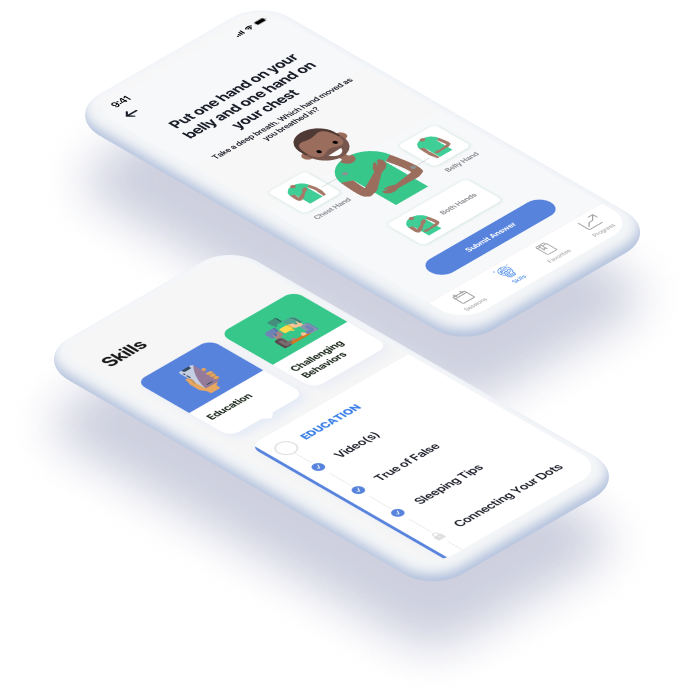
.png?width=340&height=705&name=Frame%20(5).png)
As one of the nation’s leading medical schools, Weill Cornell Medicine is on the cutting edge of psychiatric research — and their technology needed to be, too.
-1.png?width=375&height=316&name=Group%201286%20(1)-1.png)
Today, Weill Cornell Medicine remains committed to advancing medical knowledge and improving patient outcomes by pairing its robust research programs with a forward-looking approach to adopting new tech — including putting people’s increased reliance on smartphones to good use.
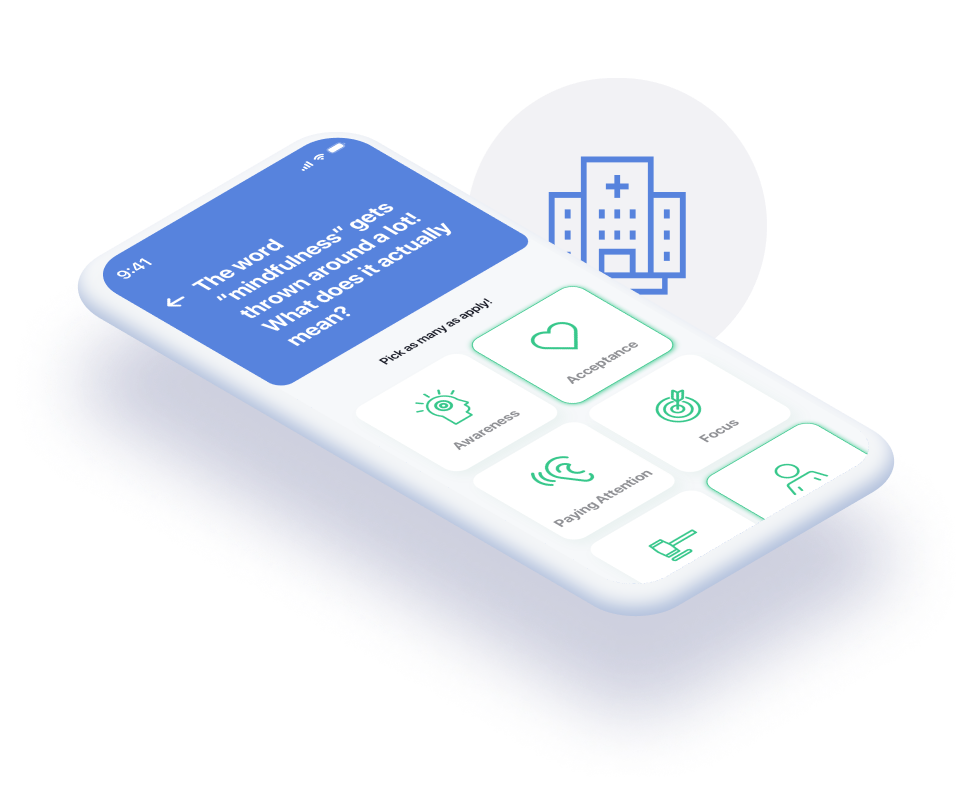
Weill Cornell Medicine needed a mobile app that used tried-and-true therapeutic modalities to simulate the in-person therapy room experience.
.png?width=311&height=321&name=Group%201282%20(1).png)
An app that aimed to do just that had already been built by Weill Cornell’s IT department. Before the Maya app was built, Weill Cornell Medicine had to bring people in for face-to-face sessions to conduct their research; the app enabled them to provide treatment and conduct research via mobile rather than IRL.
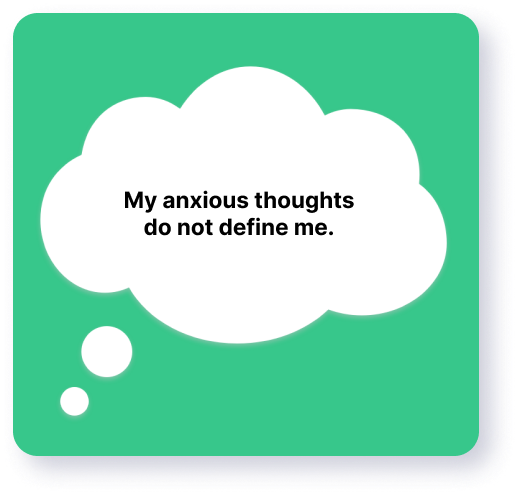
It lacked flexibility and the ability to customize its programs for different groups of people. Mental health is hardly a one-size-fits-all issue, and Weill Cornell needed a dedicated partner to build a more dynamic mobile app that could provide uniquely tailored treatments. That’s where Heady came in.
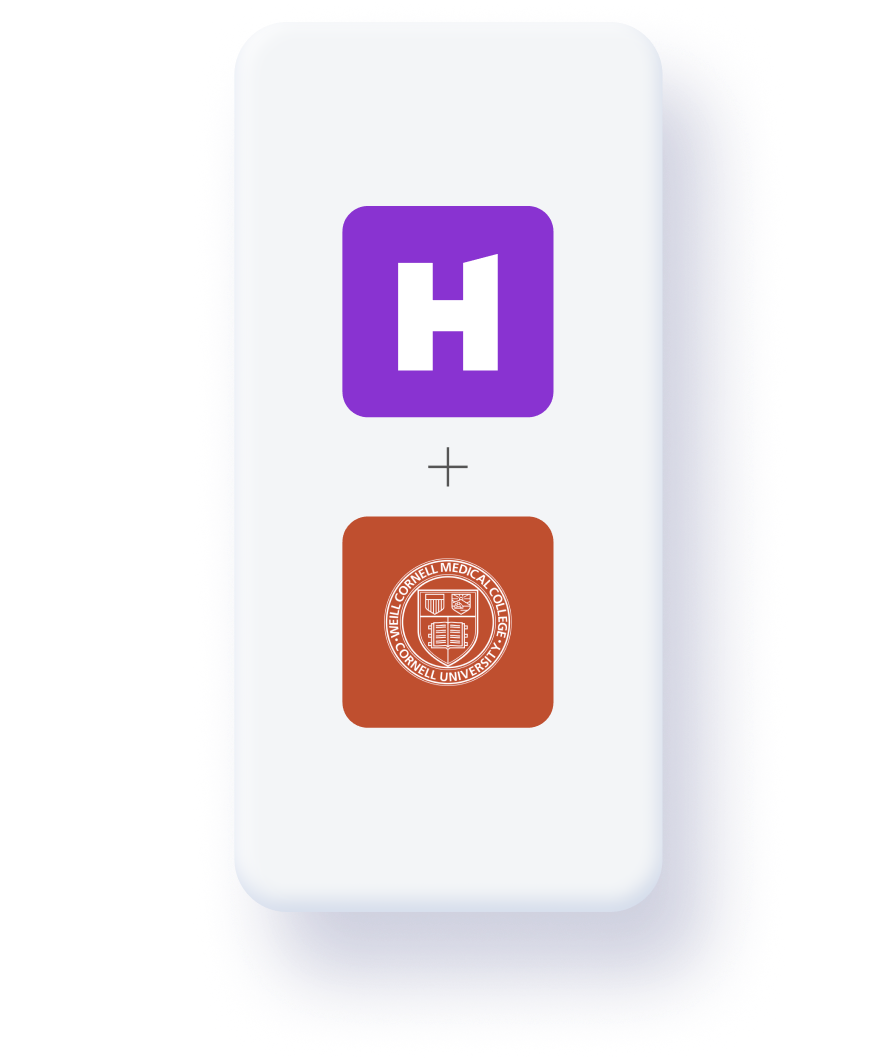
Delivering a mobile app that would fulfill Weill Cornell’s wishlist meant beginning with a robust discovery phase. To understand the client’s needs and ensure our build would provide them with all the desired features and capabilities, we first had to understand the nuances of CBT and how they could best be applied to a mobile app.
It involves identifying and changing negative thought patterns and behaviors, leading to improvements in functioning and quality of life.
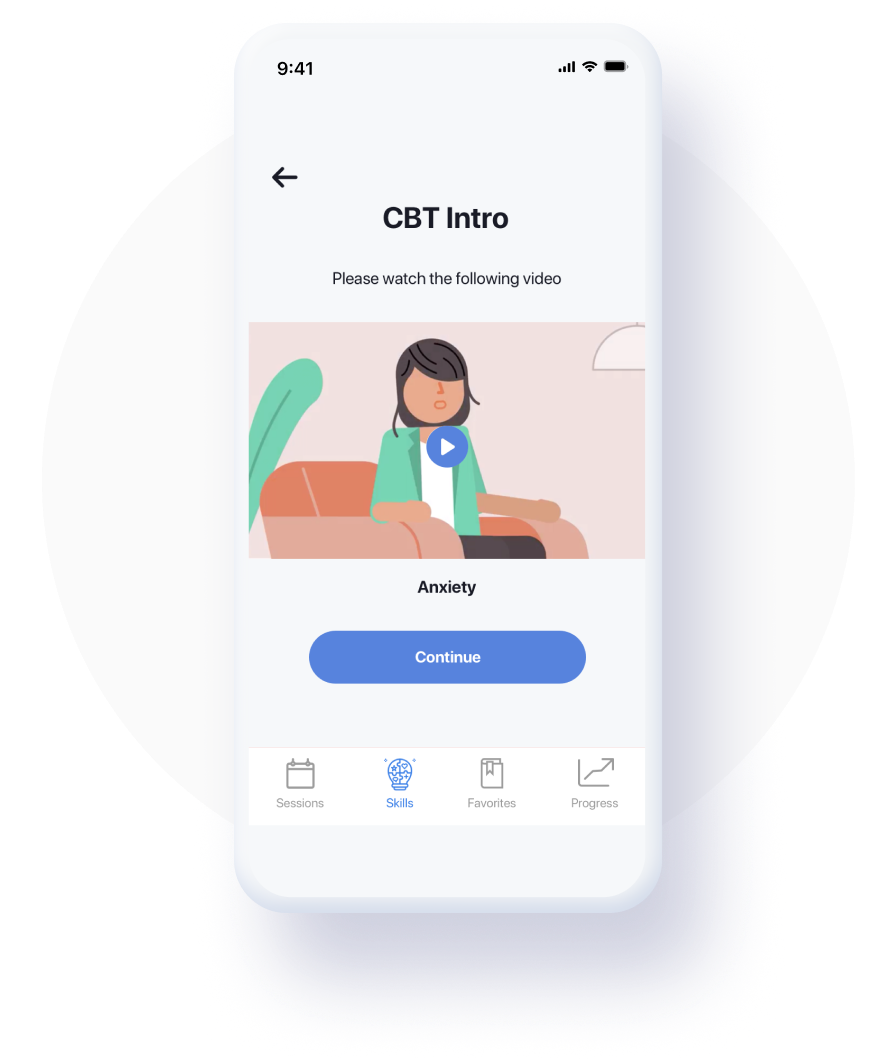
The first was the more immediate challenge ahead of us: building a custom platform that would allow Weill Cornell’s psychiatric department to create an infinite number of customizable therapeutic programs in order to conduct effective research studies and serve their patients. The second was broader and even more ambitious: building an app that would ultimately make CBT more accessible to a larger population, and improving their lives by giving them a new way to manage anxiety, depression, and other mental health challenges — one that fit in their pocket.
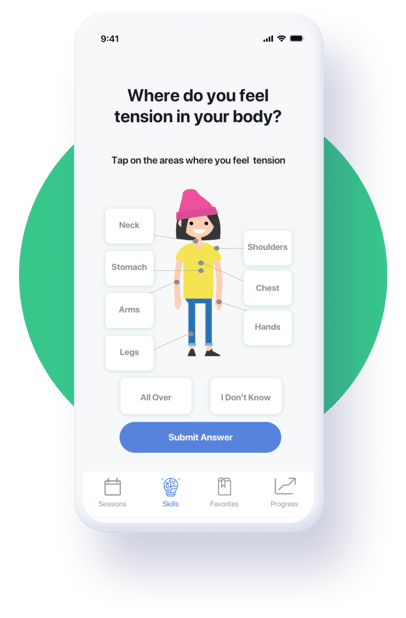
The old Maya app had a one-size-fits-all program featuring 12 static CBT sessions to be completed in order, which wasn’t ideal: Humans all have their own unique challenges, and Weill Cornell needed to design various programs to suit them, as well as to determine what kind of exercises would be the most effective.
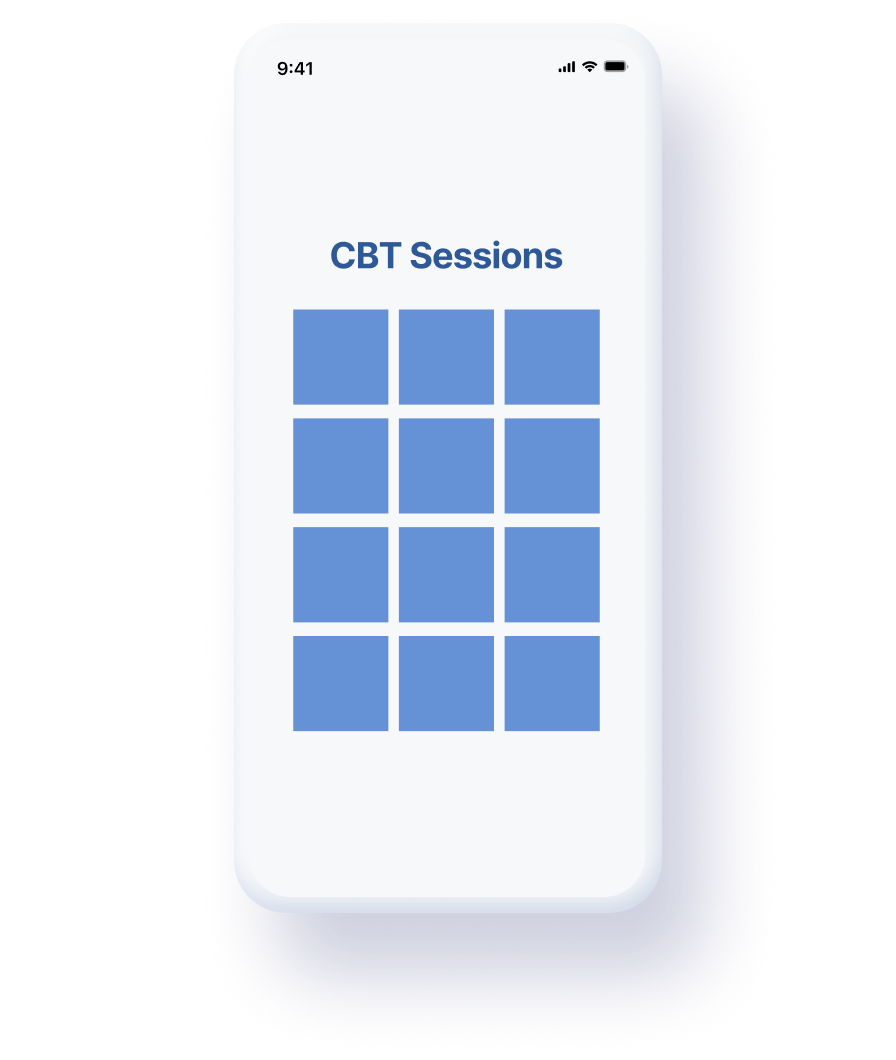
They needed a flexible solution that allowed them to make changes within programs and update in real time, instead of spending time to go through the entire update process in the App Store (and forcing patients to constantly update to the latest app version). So while an earlier version of the Maya app already existed, we didn’t build off of it: Instead, we used it as a jumping-off point to create something more dynamic and flexible.
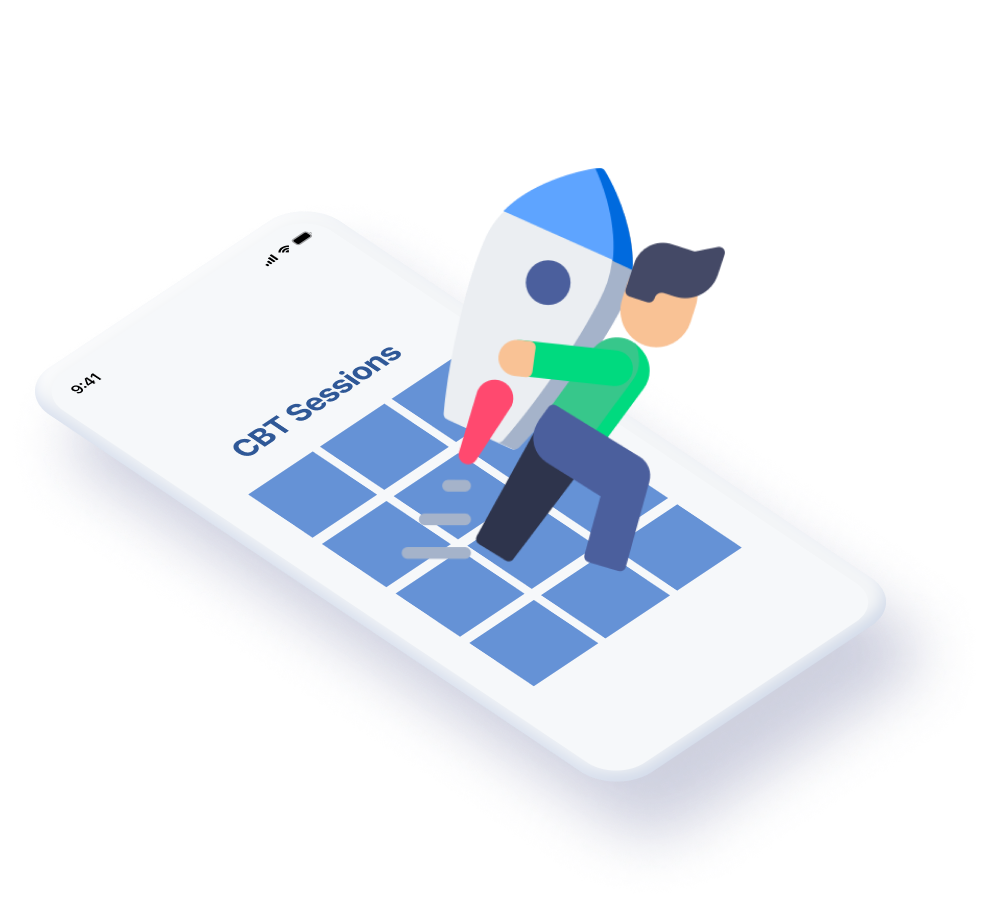
Weill Cornell Medicine’s psychiatry department needed an expert tech partner who could build a native mobile app from scratch — and one who could also grasp the unique nuances of working with the healthcare industry (more broadly) and a medical school that is largely funded by donors
(more specifically).
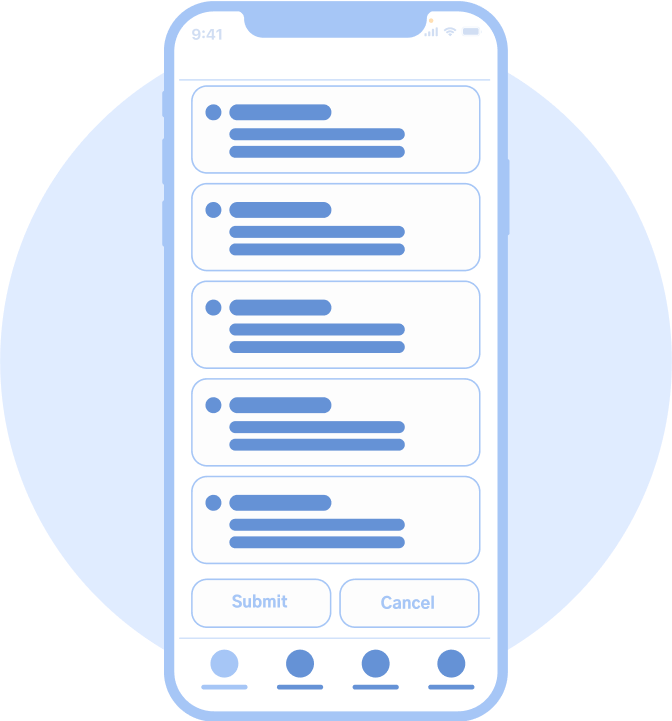
.png)
At Heady, our ability to deeply understand the intricacies of industries other than our own and solution-engineer alongside their experts allows us to create the best digital products that solve our clients’ biggest challenges.
As psychiatrists at a busy medical school without its own product department, the clients needed us to be able to self-manage the project without a lot of handholding. We communicated via daily email check-ins and weekly meetings to share designs and mockups, receive feedback, and align on the product roadmap.
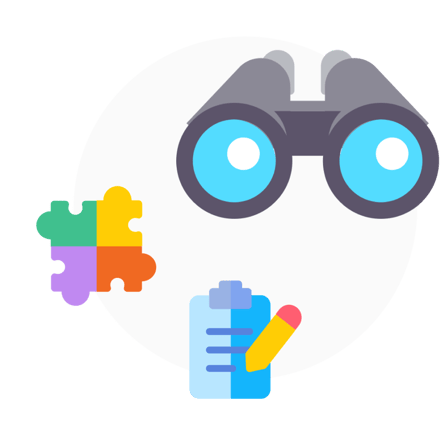
They needed the ability to create new programs on their own, without having to involve a technology partner on a day-to-day basis. To conduct effective research, they needed to be able to segment users into cohorts, or groups of users that were taking the same program. They also wanted to implement a notification system that would encourage users to keep returning to the app, as well as a reporting feature so they could measure the app’s effectiveness as part of their research studies.
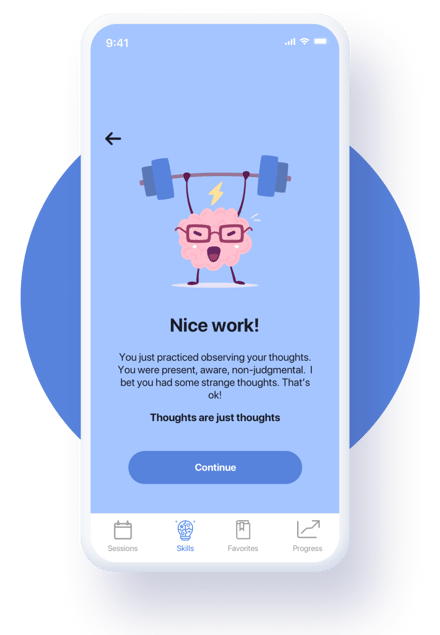
 Learn
Learn An educational section offers valuable insights and techniques for mitigating stress and anxiety.
 Practice
Practice Users are then prompted with a practical exercise that allows them to apply what they've learned.
 Review
Review A brief multiple-choice quiz helps to reinforce the concepts covered in each session.
Through a methodology that’s constantly being adjusted and updated, users are able to take control over their mental health and start their journey to feeling better with the guidance of Weill Cornell Medicine’s psychiatrists.
Before moving into the design phase, it was essential that we deeply understood the needs of Weill Cornell’s psychiatric department as well as the needs of their patients and
research subjects.
Heady’s design team had to rethink the UX of the app from the ground up to ensure a seamless experience for the app’s current as well as future state. The resulting Maya app has a clean, polished, and simple look that prioritizes user experience above all else.
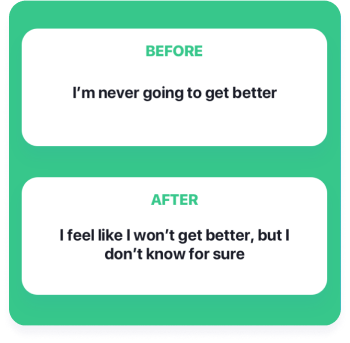
We accommodated this from a design perspective by using a modular approach, creating key screens (such as an introductory screen, multiple choice answer screens, and exercise complete screen) that can be customized and combined in numerous ways in order to enhance the therapy experience.
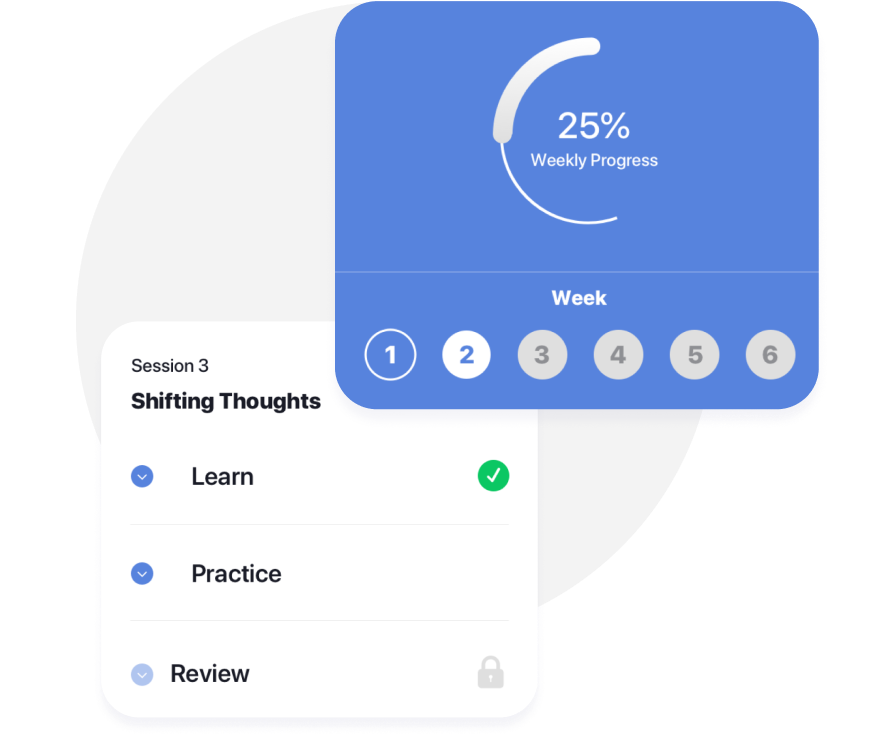
Another major area of design focus was on beautiful animations and transitions to gamify the in-app CBT experience, including microinteractions to highlight users’ success when they complete an exercise, and colorful badges and graphs that show users’ progress at a glance. Strategically using these elements together with our modular designs created a pixel-perfect, motivating user interface to keep users engaged and moving forward with their program.
Each program had to be unique, and building a framework that gave the client the ability to swap out individual cartridges and lessons would create infinite program options. At the same time, the user interface needed to provide user-friendly interactions for a wide audience.

On the backend, we focused on building the necessary APIs to serve the frontend as well as creating microservices for important functions (namely, notifications and gamification) that worked independently from the rest of the app, allowing us to make any needed updates without disrupting the entire architecture. Behind the scenes, we also had to create automated reporting capabilities to track user and overall program performance. Reports needed to be generated for all programs and users and delivered to administrators for daily download via email and secure directory.
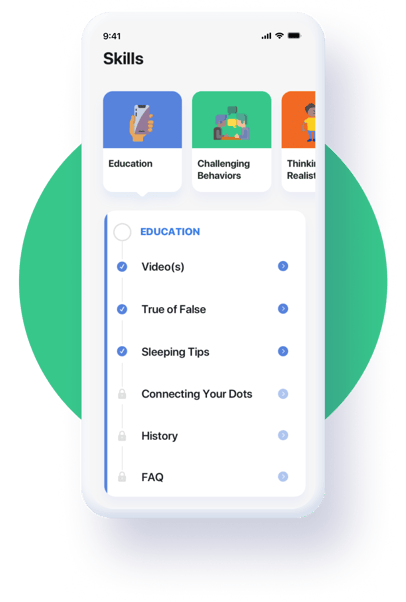
In order to run effective research studies, Weill Cornell’s psychiatric department needed to be able to quickly and easily adjust programs within the app and add new ones on the fly.
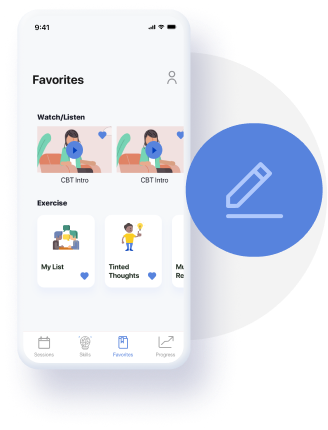
In its previous form, the Maya app was hard-coded, meaning the programs were not customizable and making any changes required the help of their IT department.
We had to devise a solution that would allow someone with minimal technical know-how to make changes to the app’s therapeutic programs while also keeping the other biggest technical hurdle in mind...
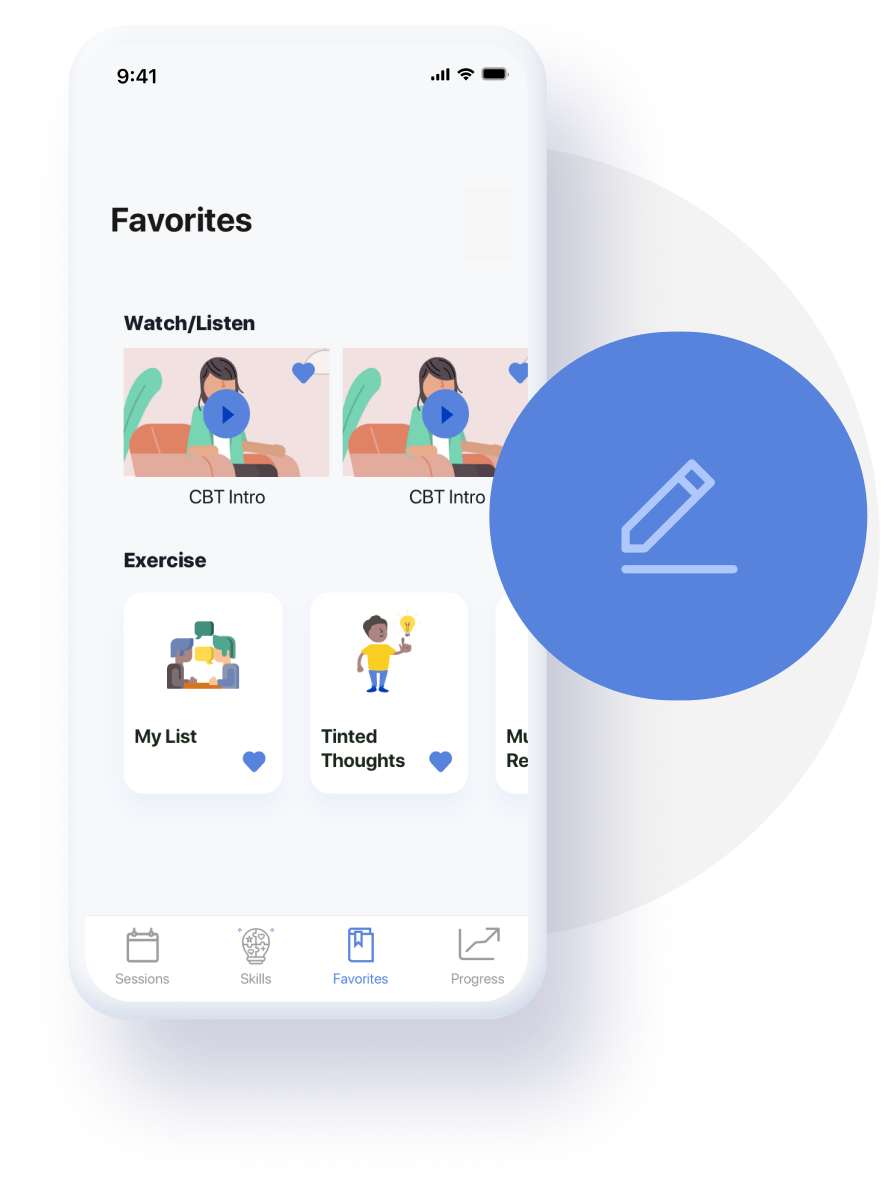
Another major technical hurdle was ensuring HIPAA compliance for user data while allowing seamless integration with frequently updated content that didn't need to be compliant.

The Health Insurance Portability and Accountability Act sets federal standards for protecting certain health information. It’s a critical consideration for healthcare-related mobile apps that collect, store, and transmit protected health information about patients or users.
Apps must implement safeguards to secure personal health information. HIPAA compliance is essential to maintain trust with users as well as to avoid legal penalties, and it was key to building a successful app for Weill Cornell.

Heady’s proprietary application management system, AMS, played a vital role in giving Weill Cornell the flexibility they needed with the Maya app. AMS allowed us to create templates for exercises that the Weill Cornell team could use to create an infinite number of new programs. Within each template, the client could add, remove, or rearrange exercises before publishing them to the users.
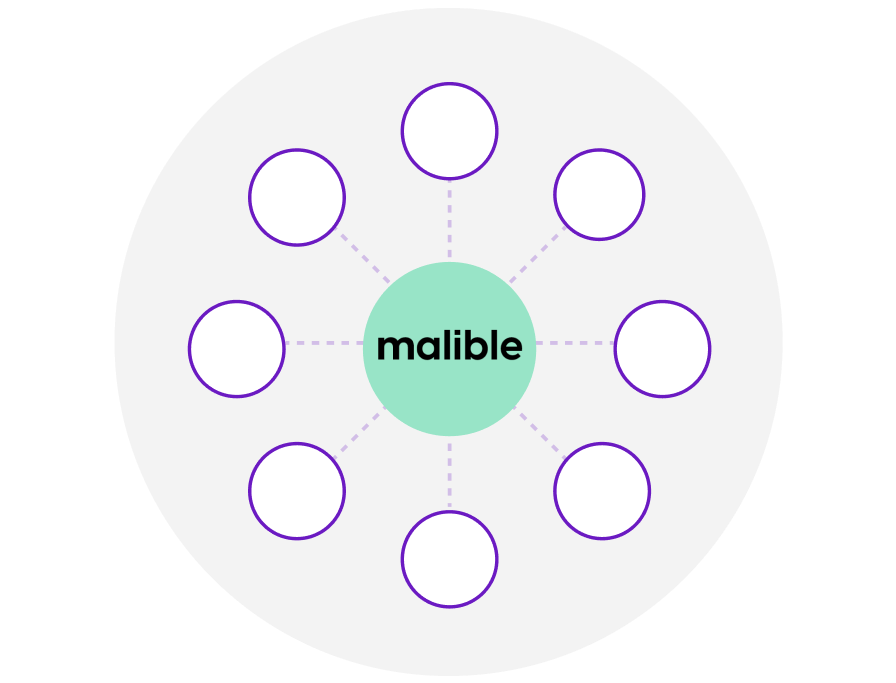
AMS provided the flexibility of creating dynamic codes for each program on the run, which was previously a completely manual process. This was a game-changer for Weill Cornell, as they could now create as many programs as they wanted with minimal manual effort. Adding media content like audio and video to exercises also became much easier for them since it was no longer hard-coded into the app.

The solution involved using the HIPAA compliant infrastructure already in place at Weill Cornell to store user data, while the program content was served from separate servers. Anonymizing certain data points and matching up personally identifiable information during report generation allowed for compliance while keeping Weill Cornell’s identity provider on-premise. The login/registration/forgot password flow was implemented using AWS Cognito to avoid managing external authentication services, with user IDs stored in the backend to map data back in the reporting tool.
The solution involved using the HIPAA compliant infrastructure already in place at Weill Cornell to store user data, while the program content was served from separate servers.
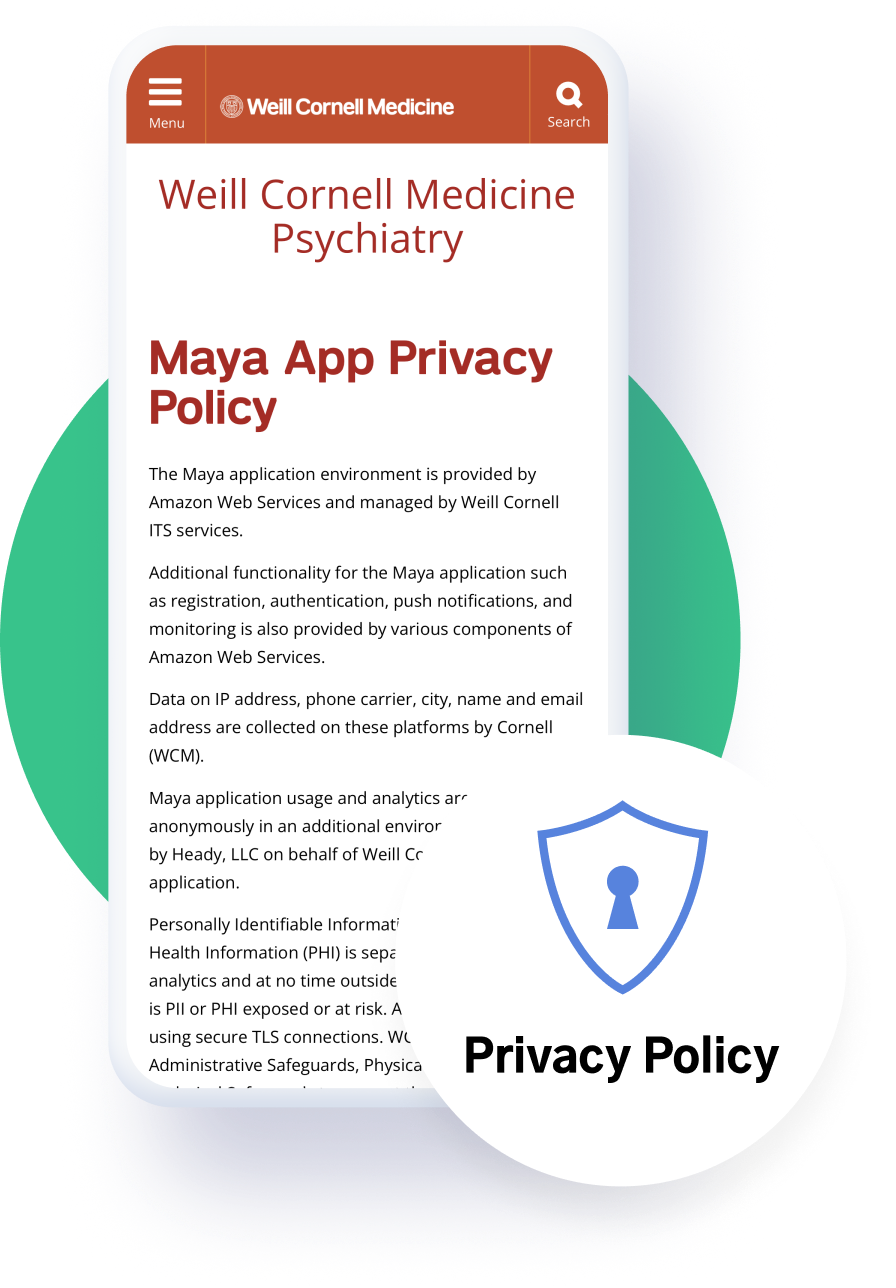
Anonymizing certain data points and matching up personally identifiable information during report generation allowed for compliance while keeping Weill Cornell’s identity provider on-premise.
The login/registration/forgot password flow was implemented using AWS Cognito to avoid managing external authentication services, with user IDs stored in the backend to map data back in the reporting tool.
This efficient approach meant we utilized Weill Cornell’s existing infrastructure and they didn’t have to switch to an unfamiliar cloud platform to manage their user base. We could’ve built a HIPAA complaint system from the ground up for them with AMS, but instead we devised a solution to get the two systems to work together. The Heady approach is to solution-engineer by keeping what’s good and then building the rest, instead of throwing everything out and starting from scratch.
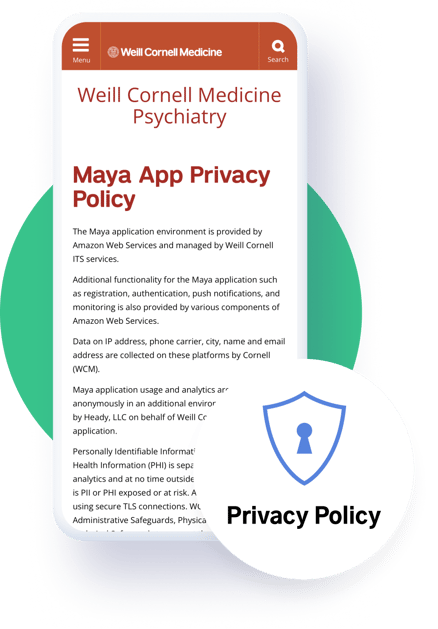
.png)
Heady’s proprietary content and feature management platform, AMS, played a vital role in the Maya app project. AMS serves as a single hub for managing and personalizing applications, and it was perfectly suited to give Weill Cornell the ability to easily add new programs to their app without having to rewrite them every time.
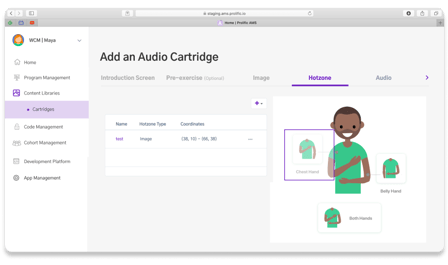
Heady built a powerful custom platform for Weill Cornell Medicine’s psychiatry department, including an iOS app and a robust CMS, that leverages their existing infrastructure and crucially, maintains HIPAA compliance.
Here are a few of the key features we built for the Maya app:
Within AMS, we also created a mechanism for the client to identify which cohort a particular user should be mapped to. This is based on whether they’re a clinical study participant using a code they were given, or a patient who has completed an in-app self-assessment and needs to be placed into the appropriate program.
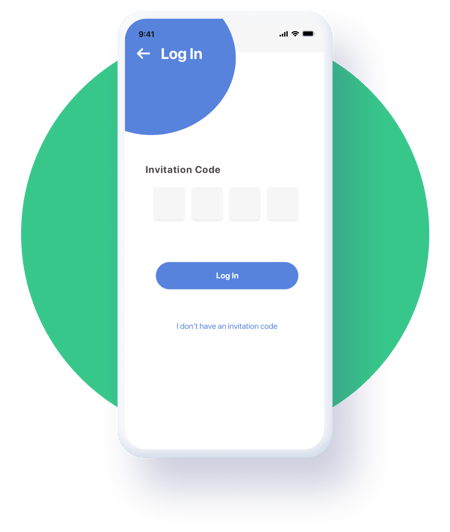
Reports contain information such as how much time an individual user has spent in the app and how many exercises they’ve completed, and user data is grouped by cohort so programs can be measured effectively. Being able to see individual users’ progress is important for research, so in order to maintain HIPAA compliance we built a microservice that mapped users’ personal identifiable information (PII) with their user IDs stored in the database. Reports are first generated from our Amazon Web Services (AWS) account and pushed to the client’s cloud storage. Then, we set up an AWS Lambda function that mapped the user IDs back with the PII data and exported it as a CSV file to the client, ensuring that users’ sensitive data is kept confidential.
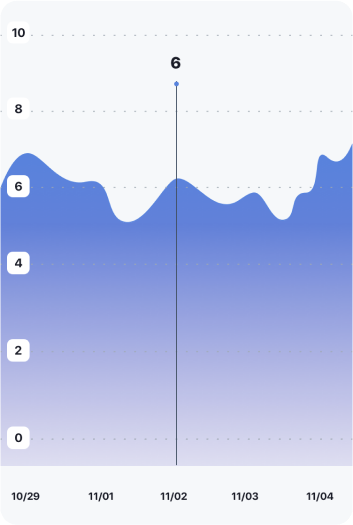
One deducts points from users who don’t complete exercises on time, while the other only awards points each time a user successfully completes an exercise on time.
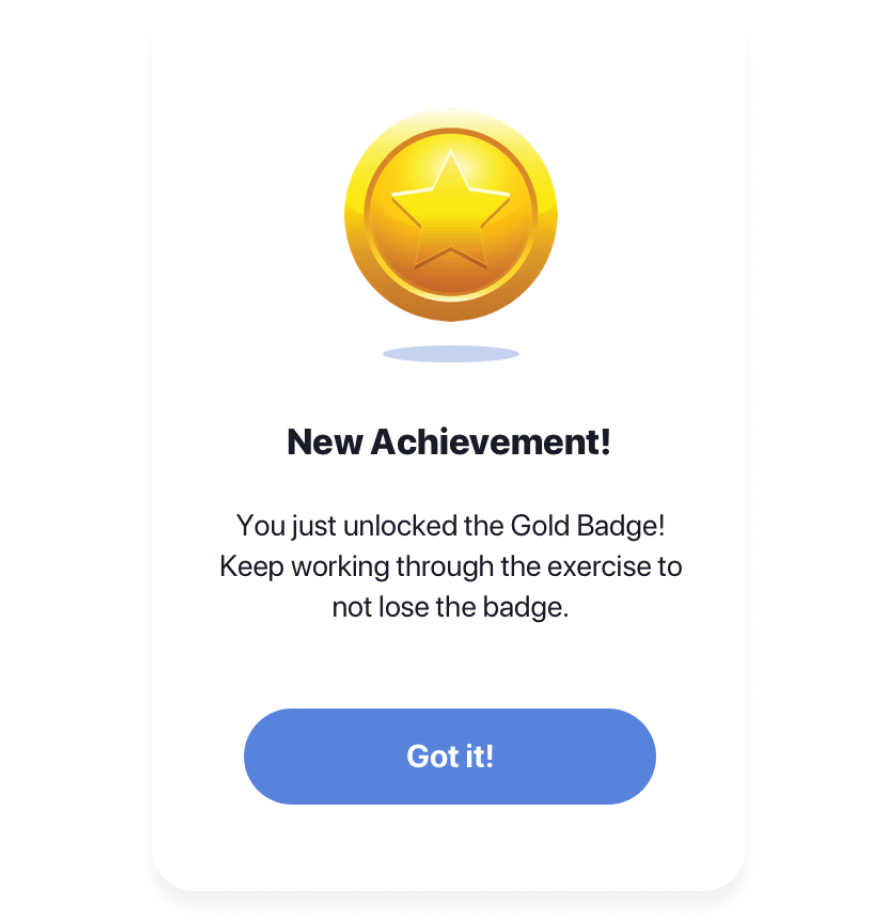
Weill Cornell Medicine got exactly what they needed: a dynamic new mobile app that elevates the capabilities of their psychiatric department by giving them a ton of flexibility in providing CBT-based therapeutic programs.
A built-in reporting feature enables them to measure the effectiveness of their programs, further aiding in their research efforts, and it’s all done in full HIPAA compliance — a crucial component for any healthcare platform.
The findings of this study suggest that self-guided mobile cognitive behavioral therapy apps can be an effective method to improve mental health. Following the iOS launch in 2022, the Android version of the Maya app launched in November 2025, continuing to democratize access to CBT for a wider audience.
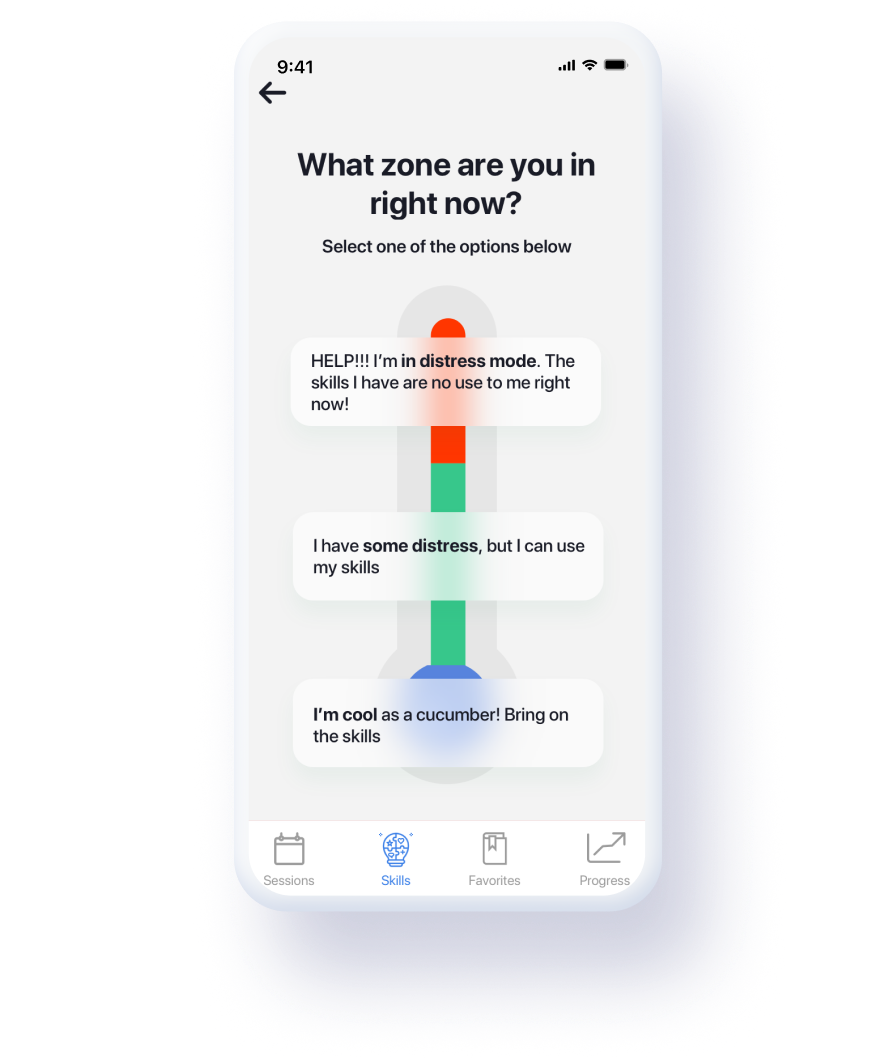
At Heady, long-term client relationships are everything to us, and our partnership with Weill Cornell Medicine is no different. We’re currently in maintenance mode, because a digital product is never truly finished: As more data is gathered from Maya users, we’re identifying and implementing improvements, ensuring that the Maya app continues to best serve the needs of its users.
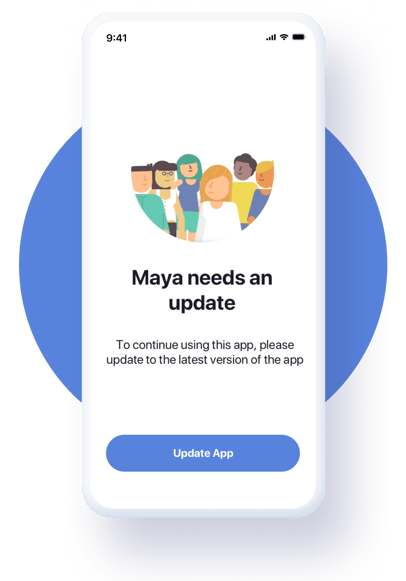
Heady built a proprietary raffle system for athletic retailer Hibbett Sports, democratizing hyped sneaker launches while supporting an award-winning omnichannel shopping experience.
Heady created bespoke digital applications for modern skincare experts Heyday, building a fresh-faced, omnichannel solution that stands out in the beauty space.
Our emails are (almost) as cool as our digital products.
Your phone will break before our apps do.

© 2026, Heady LLC.